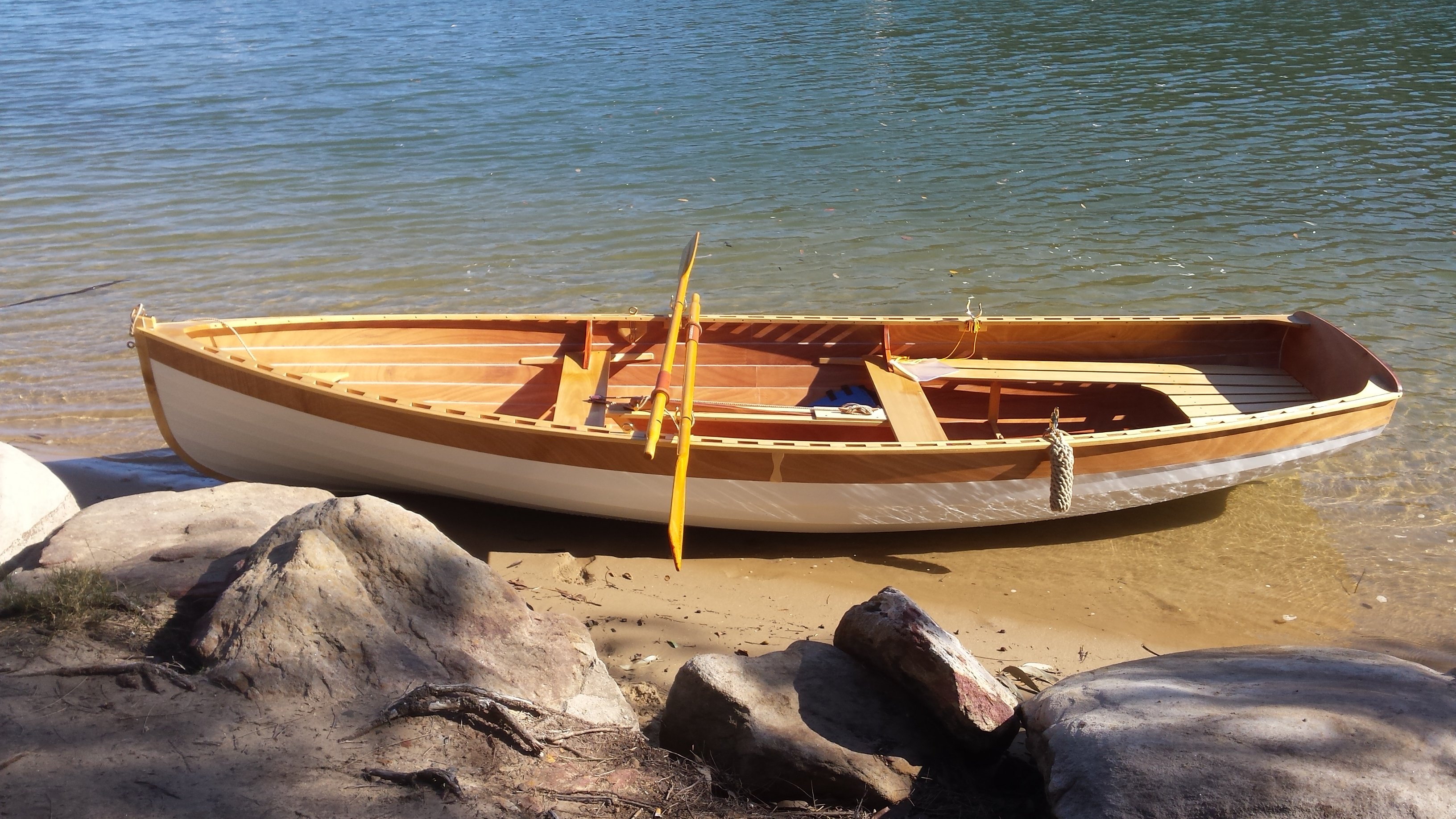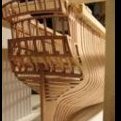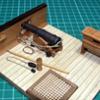Supplies of the Ship Modeler's Handbook are running out. Get your copy NOW before they are gone! Click on photo to order.
×
-
Posts
1,261 -
Joined
-
Last visited
Reputation Activity
-
 Bedford got a reaction from muzzleloader in LE BONHOMME RICHARD by Jeronimo - FINISHED
Bedford got a reaction from muzzleloader in LE BONHOMME RICHARD by Jeronimo - FINISHED
I might as well give up now, I will never be that good.
-
 Bedford got a reaction from Shazmira in San Francisco 2 by Shaz - FINISHED - Artesania Latina - Wood
Bedford got a reaction from Shazmira in San Francisco 2 by Shaz - FINISHED - Artesania Latina - Wood
Good on you for doing the scratch building Robbyn, in my view that's what makes you a good modeller rather than just someone how puts a kit together.
Re your bike trip I have one question.............................how are you going to safely carry the SF on a bike so you can work on it while you are there
-
 Bedford got a reaction from Sjors in San Francisco 2 by Shaz - FINISHED - Artesania Latina - Wood
Bedford got a reaction from Sjors in San Francisco 2 by Shaz - FINISHED - Artesania Latina - Wood
Catfalls is another term.
If you think of them as cats paws and the lines dropping from them as the cats claws you will see where the name comes from.
Now, stop dreaming and get back to work !
-
 Bedford got a reaction from DCIronfist in San Francisco 2 by Shaz - FINISHED - Artesania Latina - Wood
Bedford got a reaction from DCIronfist in San Francisco 2 by Shaz - FINISHED - Artesania Latina - Wood
I have no idea how hot a curling iron gets but I would imagine not very.
From the look of your profile pic you wouldn't have any other use for one though
-
 Bedford reacted to realworkingsailor in San Francisco 2 by Shaz - FINISHED - Artesania Latina - Wood
Bedford reacted to realworkingsailor in San Francisco 2 by Shaz - FINISHED - Artesania Latina - Wood
As long as you don't .. Uh.. bond...over crazy glue...
Sorry....couldn't help myself...
Andy
-
 Bedford got a reaction from Anja in Improving brass hinges
Bedford got a reaction from Anja in Improving brass hinges
As a result of Shazmira posting about badly formed and ill fitting rudder hinges I thought I would post my answer to the problem.
First get one of these, it is a tile nipping tool designed to help shape ceramic tiles.
I don't use brass rod for the hinge pin opting instead for brass nails supplied with the kit, cut to length and put into the hinge with the head at the top like most domestic hinges to stop the pin falling through.
Then holding the hinge pin section of the hinge with the tool, note, I did not put the pin in for the pic.
Push the tool and hinge down onto a hard edge wide enough to fill the throat of the hinge and while pushing against this crimp the hinge in around the pin. The pin should not get jammed because the brass will normally spring back just a bit.
When the pin pocket is crimped in nicely you can rebend the throat of the hinge tightly around a metal or hard wood edge that is the same thickness as the stern post or rudder using a hard straight edge to bend with to get a clean fold.
Note: if the brass is hard you can heat it until it is going red and leave to cool. This will soften it nicely but leave it discoloured, a touch of emery or steel wool will fix that easily.
-
 Bedford got a reaction from Jeronimo in LE BONHOMME RICHARD by Jeronimo - FINISHED
Bedford got a reaction from Jeronimo in LE BONHOMME RICHARD by Jeronimo - FINISHED
I was thinking the same thing, the stairs would be much easier to negotiate if they were linear.
-
 Bedford got a reaction from mtaylor in Improving brass hinges
Bedford got a reaction from mtaylor in Improving brass hinges
As a result of Shazmira posting about badly formed and ill fitting rudder hinges I thought I would post my answer to the problem.
First get one of these, it is a tile nipping tool designed to help shape ceramic tiles.
I don't use brass rod for the hinge pin opting instead for brass nails supplied with the kit, cut to length and put into the hinge with the head at the top like most domestic hinges to stop the pin falling through.
Then holding the hinge pin section of the hinge with the tool, note, I did not put the pin in for the pic.
Push the tool and hinge down onto a hard edge wide enough to fill the throat of the hinge and while pushing against this crimp the hinge in around the pin. The pin should not get jammed because the brass will normally spring back just a bit.
When the pin pocket is crimped in nicely you can rebend the throat of the hinge tightly around a metal or hard wood edge that is the same thickness as the stern post or rudder using a hard straight edge to bend with to get a clean fold.
Note: if the brass is hard you can heat it until it is going red and leave to cool. This will soften it nicely but leave it discoloured, a touch of emery or steel wool will fix that easily.
-
 Bedford got a reaction from tkay11 in Improving brass hinges
Bedford got a reaction from tkay11 in Improving brass hinges
As a result of Shazmira posting about badly formed and ill fitting rudder hinges I thought I would post my answer to the problem.
First get one of these, it is a tile nipping tool designed to help shape ceramic tiles.
I don't use brass rod for the hinge pin opting instead for brass nails supplied with the kit, cut to length and put into the hinge with the head at the top like most domestic hinges to stop the pin falling through.
Then holding the hinge pin section of the hinge with the tool, note, I did not put the pin in for the pic.
Push the tool and hinge down onto a hard edge wide enough to fill the throat of the hinge and while pushing against this crimp the hinge in around the pin. The pin should not get jammed because the brass will normally spring back just a bit.
When the pin pocket is crimped in nicely you can rebend the throat of the hinge tightly around a metal or hard wood edge that is the same thickness as the stern post or rudder using a hard straight edge to bend with to get a clean fold.
Note: if the brass is hard you can heat it until it is going red and leave to cool. This will soften it nicely but leave it discoloured, a touch of emery or steel wool will fix that easily.
-
 Bedford got a reaction from BANYAN in Improving brass hinges
Bedford got a reaction from BANYAN in Improving brass hinges
As a result of Shazmira posting about badly formed and ill fitting rudder hinges I thought I would post my answer to the problem.
First get one of these, it is a tile nipping tool designed to help shape ceramic tiles.
I don't use brass rod for the hinge pin opting instead for brass nails supplied with the kit, cut to length and put into the hinge with the head at the top like most domestic hinges to stop the pin falling through.
Then holding the hinge pin section of the hinge with the tool, note, I did not put the pin in for the pic.
Push the tool and hinge down onto a hard edge wide enough to fill the throat of the hinge and while pushing against this crimp the hinge in around the pin. The pin should not get jammed because the brass will normally spring back just a bit.
When the pin pocket is crimped in nicely you can rebend the throat of the hinge tightly around a metal or hard wood edge that is the same thickness as the stern post or rudder using a hard straight edge to bend with to get a clean fold.
Note: if the brass is hard you can heat it until it is going red and leave to cool. This will soften it nicely but leave it discoloured, a touch of emery or steel wool will fix that easily.











